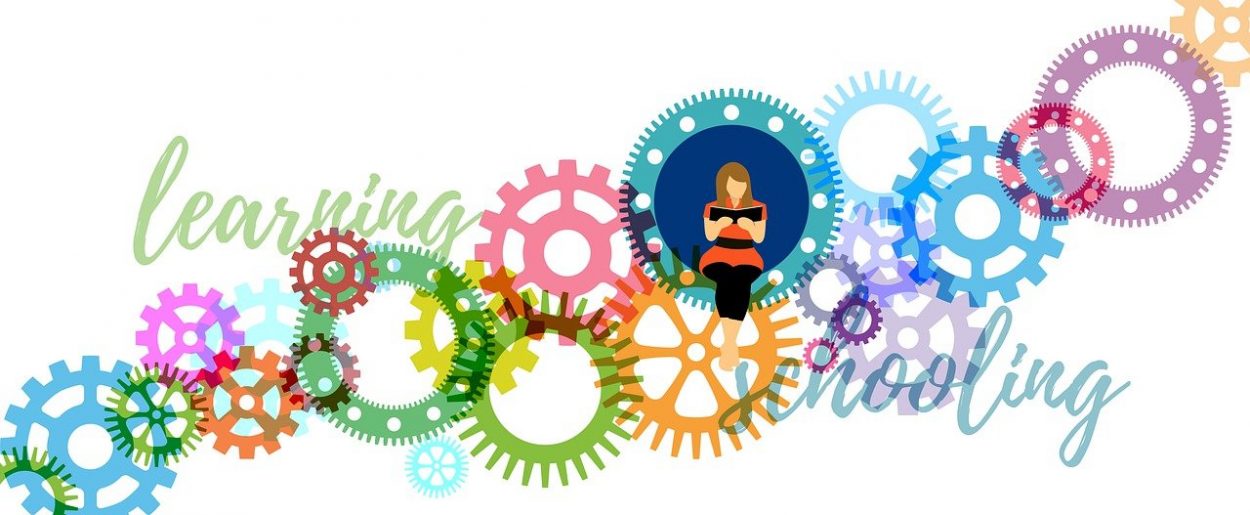My Son’s Story
My oldest son Maxie was such a playful, affectionate, happy child. He was full of giggles, funny faces, and energy as most kids usually are. In the mid-80s, when he started daycare at three and a half, he was so excited. There were other children to play with and so many new toys. He adjusted quickly to being left with strangers in a new environment.

When it came time for my son to pass on to kindergarten, the daycare director expressed concern that my son had a noticeably short attention span. She felt that he required the teacher to speak to him too frequently to get him to focus. I didn’t see where this was a problem initially, but I did keep this in mind when enrolling him in another school. His dad and I decided to put him in a private school with smaller classes. His new school tested him to see if he should be in Pre-K or kindergarten. They decided he was not emotionally mature enough to proceed to kindergarten, so they kept him in pre-K. I had never thought of a child’s level of maturity at 5 years old. Aren’t all 5 y/o children immature and playful? I was disappointed, but I understood; this was to give him time to settle down and focus. I convinced myself that this would help him do better in school in the long run.
Constant Calls About His Behavior
With each advancement in grade, the calls from the teachers became more frequent. He was always cutting up, acting out, being the class clown. He just wanted to play. I got to a point where I could expect a call from the school principal every Friday. She would tell me of his antics in class, which were usually funny but disruptive, nonetheless. He was 7 years old and didn’t understand why his parents were always angry with him. He didn’t understand why making the class laugh was wrong. He would always say, “I’m sorry, mommy,” with the sincerest face. But I knew that he really didn’t understand. I finally had it out with the principal for calling me so frequently about problems I felt she should know how to handle as a professional. I thought that she should be able to give me advice. I was at my wits’ end.

Well, that didn’t work. The principal suggested that we just weren’t disciplining him enough; we needed to take aggressive measures. I knew that wasn’t the answer. We had been spanking him every time we got a call from the principal about him. Dad and I were exhausted with this child and all the school issues. We would spend 3-4 hours every night helping him with his homework. One of his teachers told us that nothing he brings home should take more than 20 minutes to complete. What! My child was starting to hate school, and he absolutely hated homework. We implemented a whole process to prepare him for his assignments. We would give him a snack after school, let him go outside to play for an hour, then bring him in to get started on homework. He would cry at times; he was so frustrated. We didn’t know what to do. What I did decide was to never spank my child again. I knew that spanking my child wasn’t fixing a problem he didn’t understand. And spanking him more would be child abuse.
Switching Schools and Getting Help
His dad and I decided to put him in a public school and see if a change would work in everyone’s favor. By this time, he was nine, and the same behavior continued. We met with his teacher, and she suggested that we have Maxie tested for learning disabilities. Great, maybe this will shed some light on the problem.
While our school system seems to offer all the necessary services to ensure that our children succeed on paper, it seemed to me that they would often fall short on enough resources to carry out those services promptly. While Having policies in place on paper looks good. Carrying those policies out is quite another matter.

While we waited for a test appointment, I felt I could now take a breath. My son is probably dyslexic. He was already wearing glasses, and we knew he could hear because the slightest noise would wake him from a nap. I ran down the list of learning disabilities performing this process of elimination. Once I thought the worst, what if they don’t find a disability? Is he this lovable wild kid that no one can teach, a kid that can’t learn for some unknown reason? I refused to believe that. I had to calm myself down and just wait. I felt helpless and at the school system’s mercy.
My experiences dealing with a child who had a learning disability, along with the indifference I saw in the school system was overwhelming and, at times, depressing. Some of the teachers were ready to work with us on addressing Maxie’s short attention span. Still, others just wanted to follow administrative protocols and move the problem out of their sphere of responsibility. Once he was labeled Special Ed, he would fall under different protocols, different classes.
The Diagnosis
Once the test results were in, it was determined that our son had “ADD,” Attention Deficit Disorder. I felt relieved. This is manageable, something that the teachers can suggest learning tools for. He wasn’t hyperactive, so I wasn’t about to let anyone put him on any medication. I was shocked when they recommended Special Ed. My son isn’t “retarded” (A term still used at the time).
I had been transferred to a whole different department, a separate “special education” department. I can’t really describe how scared I felt for my son. I didn’t want him stigmatized and shunted off into some Special Ed class where he would be taught the basics and not motivated to reach his highest potential. Fortunately, the adviser assigned to me for this process was informative and gentle. They would transfer Maxie to a school with a special education program that would address his IEP (Independent Education Program). Apparently, not all schools were equipped with Special Ed classes. I insisted on observing the class and school first before they transferred him. It was a short list to choose from, and all the schools but one were scattered around town. His dad and I both worked. Having to travel across town to take him to school would be a problem. I wouldn’t even consider the short bus for my son to be transported.
The Search for the Right School
I visited each of the five or six schools that were recommended. I couldn’t believe some of the classes that they thought would be appropriate for Maxie. The first class I stepped into had one child throwing a chair across the room, while another child was strapped into their chair watching the show. The teacher was totally out of control and stressed. You could see the stress all over her face. Were these people crazy? I wasn’t about to put my son in this type of environment. Each school I visited was similar. At this point, I was entertaining the idea that I might have to home school my child.
I left the one school closest to where we lived for last. It turned out to be the best on the list. I spoke with the teacher at length, and she explained in detail how she tailored the teaching toward each child and how the classroom itself was designed to not distract the students from focusing on their tasks. Her average class size was 5 students with two adults, one teacher, and one assistant. She explained ADD to me in-depth and the tools she would teach my son to help him cope and organize his schoolwork. I wanted to hug her. Her goal was to equip her students with the skills to manage in a regular classroom and, within 2 years, be mainstreamed back to regular comprehensive classes. Bravo! A teacher with a positive outlook.

After Maxie was enrolled, an IEP was put in place and the teacher implemented her plan. She would call if Maxie became lax in his responsibilities and tell us specific areas where he dropped the ball. After two years with this teacher, Maxie was doing algebra in elementary school and keeping up with his work. We were all immensely proud of his accomplishments.
It Wasn’t Always Easy
I wish I could describe the emotional toll this experience took on Maxie and the rest of the family. My son was afraid to go to his new junior high school. He knew that it meant leaving his excellent teacher and perfect classroom of friends behind. The treatment by his peers in the new school was unexpected and overwhelming for him. He had become the chubby kid taking Special Ed classes along with his comprehensive courses. His dad nor I knew how to fix this. He passed out on the playground one afternoon and had to be hospitalized overnight. The doctors didn’t find anything wrong with him and released him back home. I knew it was stress and fear. This state of mind followed Maxie all through school. He had to wake up every day and face his worse fears while trying to learn.

Eventually, after moving to the suburbs and another new middle school, Maxie was able to relax. He had learned coping skills for the classroom, but socially, he realized that most kids saw him as a misfit. He knew that if he could make you laugh, you were more likely to be his friend.
His new school had a different arrangement for Special Education students. They didn’t separate those students with learning disabilities into separate classes. They were kept in regular courses but added a second teacher who was aware of their IEP. This was an excellent arrangement for Maxie. He wasn’t singled out anymore.
The Outcome
My son’s self-esteem and confidence took decades to recover, in my opinion. We have talked about this several times over the years. He’s now 38 years old and a successful IT professional. For him, school was the most horrific part of his childhood. As an adult, he is thankful that he had loving and supportive parents to get him through it. He remembers home as his only safe haven from an inescapable nightmare.
What I Learned From This Experience

- Spanking, whooping, whipping, corporal punishment, whatever label you choose, DOES NOT WORK and is traumatizing to young children. That’s just my experience. Since we don’t get lessons in parenting before having children, we do what our parents did. After all, we think we turned out okay. Well, not necessarily.
- Parents should stay engaged when dealing with problems and changes concerning their children. Just take a breath and take it one day at a time, one problem at a time. Don’t give up on your child. Ask questions until you get answers, read a book, keep an open mind, & accept that you don’t know everything.
- Parents should get some type of objective counseling when having a problem facing reality. We all know that our kids are awesome, but we all can use some help finding the correct way to support their specific type of awesomeness.
- Our school systems should be aware and supportive of parents’ struggle accepting their child’s learning disability and offer them adequate support. It made a huge difference to have someone available to me to answer questions clearly and honestly. They informed me of my rights as a Special Education parent and the education system’s obligations regarding Special Ed students. Having someone to take time with me enabled me to calm my fears and make clear decisions.
- School administrators and teachers need to be extremely careful when labeling children ‘Special Ed’ or ‘Learning disabled’.
- Students with special needs or learning disabilities should not feel singled out or publicly embarrassed because they receive extra help.
- School staff on all levels need to be vigilant concerning bullying.
About the author

Twanna Permenter
Twanna Permenter is a DC native currently soaking up the sun in Arizona. She is retired IT professional and former clinical laboratory scientist. Currently, Twanna is a writer, mother, and grandmother who loves to travel, meet new people, and eat good food. Learn more about Twanna and read her stories on her website Fannie's Place.




Leave a Comment